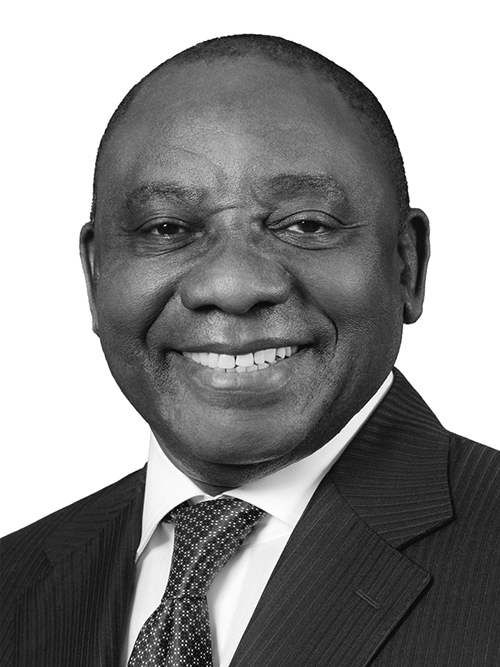Speaking notes for Deputy President Ramaphosa for SA RWC 2023 bid, London, United Kingdom

Chairman of World Rugby Council, Mr Bill Beaumont,
Vice-Chairman of World Rugby, Mr Augustin Pichot,
Esteemed Council Members,
Yesterday, South Africa celebrated Heritage Day.
Heritage Day, held on the 24th of September every year, is a celebration of our diversity and of our unity. It is a celebration of the many languages, traditions and cultures in our country and of the values, aspirations and symbols that we share.
The sport of rugby occupies a unique place in our national heritage. In many ways, it is a bridge between our past and our future. Once, it was a symbol of division and exclusion.
Now, it is a symbol of a nation striving together to achieve peace, progress and prosperity.
It was during the 1995 Rugby World Cup – when former President Nelson Mandela famously donned a Springbok jersey – that attitudes to rugby in our country underwent a profound transformation.
It was arguably at that moment that our country’s identity too underwent a profound transformation. Within a matter of days, the old South African flag disappeared from our rugby stadiums to be replaced by the joyous colours of the flag of the democratic South Africa.
So, rugby in South Africa is much more than a sport. It is an important part of our political, social and cultural identity. We have walked a long path to reach this point. Our route to liberation extends beyond the borders of our land.
The anti-apartheid struggle was heroically waged all over Africa, here in London, in Dublin, in Havana, in Paris, and in major cities in North America. We remain indebted to the many individuals, organisations and governments in the international community for having supported the birth of our new nation.
South Africans share a vision of a united nation based on justice and human dignity. We have a Constitution that promotes fair play and, importantly, the realisation by each individual of their true potential. In many respects, rugby captures the spirit of the new nation we are forging.
It helps to unite all our people, men and women, black and white, rural and urban, rich and poor. In 1995, the Rugby World Cup cemented the bonds between our diverse people. In 2023, we hope to use the Rugby World Cup to inspire and unite not only South Africans, but the global community of nations.
In a world facing the threat of polarisation, intolerance and indifference, South Africa is best poised to demonstrate that rugby can break barriers, create hope and unite humanity.
The people and government of South Africa are therefore wholeheartedly behind SA Rugby’s bid.
We have proven we can deliver. We have successfully hosted the 1995 World Cup Rugby, the 1996 Africa Cup of Nations and the 2010 FIFA World Cup. Our sporting venues are excellent. Our transport and communications infrastructure is world class.
Our weather is the best in the world.
We are the birthplace of humanity.
We are a welcoming nation that embraces visitors.
We are hospitable and generous.
South Africa embraces global sporting events like few other countries.
Ours is a young and robust democracy.
We debate fiercely. We contest ceaselessly.
But we solve our differences through discussion and consensus.
Our commitment to the success of the 2023 Rugby World Cup is evident in the additional guarantee that we are providing. We see the benefits for our country and our people. This is not an expense, but a worthy investment.
And the best investment World Rugby can make is by putting their faith in South Africa to deliver.
We thank the World Rugby Council for clearly specifying the requirements for the 2023 Rugby World Cup Tournament.
We have no doubt that we have met all your criteria.
In 2023, we will deliver a sporting experience whose great impact will be felt off the field and for many years to come. Allow me to conclude with the words of Nelson Mandela, which perfectly capture the South African experience of rugby. Speaking at the banquet of the 1996 African Cup of Nations, he said:
“Sport has the power to overcome old divisions and create the bond of common aspirations.”
We want to share our country with the world. We want to share our experience with the world.
We want to create a bond of common aspirations.
We are ready.
I thank you.




